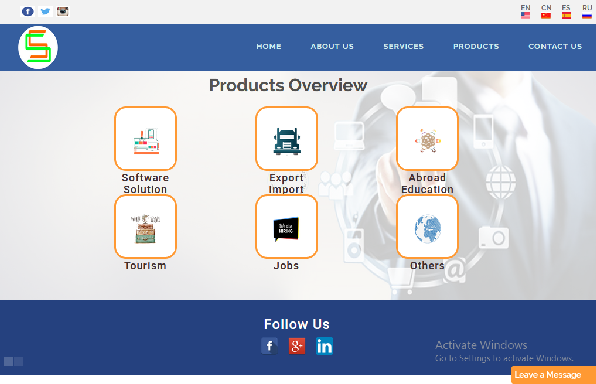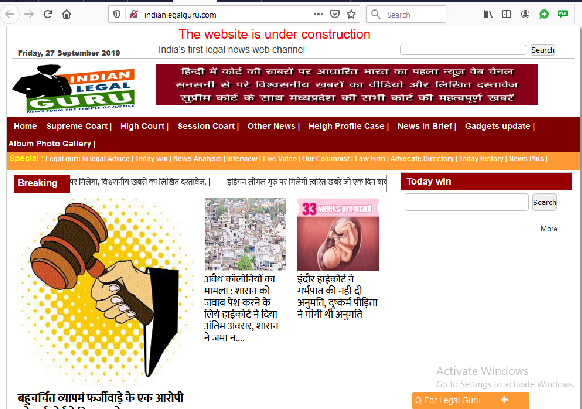PHP
PHP: Hypertext Preprocessor (or simply PHP) is a server-side scripting language designed for Web development, but also used as a general-purpose programming language. It was originally created by Rasmus Lerdorf in 1994,[3] the PHP reference implementation is now produced by The PHP Group.[4] PHP originally stood for Personal Home Page,[3] but it now stands for the recursive acronym PHP: Hypertext Preprocessor.[5] PHP code may be embedded into HTML code, or it can be used in combination with various web template systems, web content management systems, and web frameworks. PHP code is usually processed by a PHP interpreter implemented as a module in the web server or as a Common Gateway Interface (CGI) executable. The web server combines the results of the interpreted and executed PHP code, which may be any type of data, including images, with the generated web page. PHP code may also be executed with a command-line interface (CLI) and can be used to implement standalone graphical applications.[6] The standard PHP interpreter, powered by the Zend Engine, is free software released under the PHP License. PHP has been widely ported and can be deployed on most web servers on almost every operating system and platform, free of charge.[7] The PHP language evolved without a written formal specification or standard until 2014, with the original implementation acting as the de facto standard which other implementations aimed to follow. Since 2014 work has gone on to create a formal PHP specification.
ASP.NET
ASP.NET is an open-source[2] server-side web application framework designed for web development to produce dynamic web pages. It was developed by Microsoft to allow programmers to build dynamic web sites, web applications and web services. It was first released in January 2002 with version 1.0 of the .NET Framework, and is the successor to Microsoft's Active Server Pages (ASP) technology. ASP.NET is built on the Common Language Runtime (CLR), allowing programmers to write ASP.NET code using any supported .NET language. The ASP.NET SOAP extension framework allows ASP.NET components to process SOAP messages. ASP.NET's successor is ASP.NET Core. It is a re-implementation of ASP.NET as a modular web framework, together with other frameworks like Entity Framework. The new framework uses the new open-source .NET Compiler Platform (codename "Roslyn") and is cross platform. ASP.NET MVC, ASP.NET Web API, and ASP.NET Web Pages (a platform using only Razor pages) have merged into a unified MVC.
Android
Android is a mobile operating system developed by Google, based on a modified version of the Linux kernel and other open source software and designed primarily for touchscreen mobile devices such as smartphones and tablets. In addition, Google has further developed Android TV for televisions, Android Auto for cars, and Wear OS for wrist watches, each with a specialized user interface. Variants of Android are also used on game consoles, digital cameras, PCs and other electronics. Initially developed by Android Inc., which Google bought in 2005, Android was unveiled in 2007, with the first commercial Android device launched in September 2008. The operating system has since gone through multiple major releases, with the current version being 8.1 "Oreo", released in December 2017. The core Android source code is known as Android Open Source Project (AOSP), and is primarily licensed under the Apache License. Android is also associated with a suite of proprietary software developed by Google, including core apps for services such as Gmail and Google Search, as well as the application store and digital distribution platform Google Play, and associated development platform. These apps are licensed by manufacturers of Android devices certified under standards imposed by Google, but AOSP has been used as the basis of competing Android ecosystems, such as Amazon.com's Fire OS, which utilize its own equivalents to these Google Mobile Services.





